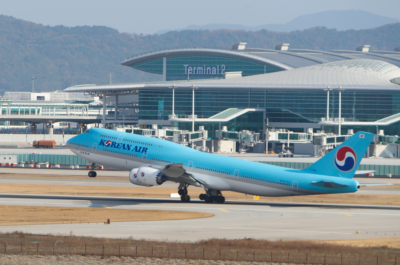Rising income in Indonesia translate into more domestic spending into shopping, house purchasing, according to a survey by Credit Suisse Group, a global investment bank, to 14,000 consumers across eight emerging economies, including Brazil, Russia, China and India, in the third quarter of last year.
JAKARTA- Rising consumer income in Indonesia has prompted citizens to shop till they drop and spend more on discretionary goods and services, according to a survey by Credit Suisse Group, a global investment bank.
This behavioral trend presents an ample opportunity for companies engaging in the sector, such as carmakers, fashion retailers and smartphone producers, Credit Suisse said in a report on Wednesday.
Credit Suisse conducted a global survey of 14,000 consumers across eight emerging economies, including Brazil, Russia, China and India, in the third quarter of last year.
In Indonesia, the survey involved 1,531 respondents from 10 regions across the country, with 66 percent of the respondents living in urban areas and 34 percent in rural areas.
Consumers in Southeast Asia’s largest economy, the survey found, were the second most confident after Brazil, with 64 percent of them expecting a rise in income over the next 12 months. Indonesia’s minimum wage went up by an average of 20 percent across the country this year.
“The extra income will likely be spent on discretionary goods such as apparel and mobile phones,” Ella Nusantoro, the vice president of equity research at Credit Suisse Securities Indonesia, told reporters on Wednesday.
Spending on fashion increased by almost 25 percent last year, Ella said, while spending on such staple items as dairy products and instant noodles declined.
Better distribution and new selling points have also played a part in boosting consumption. “We found that this year, the savings levels of respondents out of Java declined a bit,” Ella said. “They saved in the past simply because they could not spend on the things they wanted.”
Demand for housing and automobiles is also rising, the survey found, with about 30 percent of respondents saying that they planned to buy a new house or car within the next 12 months.
More than half of them said they also intended to upgrade their mobile-phone handsets to smartphones.
Car sales in Indonesia hit a record high of 1.1 million units last year, with the number set to increase this year, though at a smaller rate.
Ella noted that these consumer trends would benefit companies like Astra International, Indonesia’s largest auto company, retailer Mitra Adiperkasa and mobile-phone distributor Erajaya Swasembada.
“Bank Central Asia also has strong prospects since it deals in both car financing and mortgage,” she said.
In terms of brand preference, the survey found that locals tend to opt for domestic brands over foreign ones for items such as instant noodles, bottled water and cigarettes due to local tastes.
However, foreign brands dominate buyer preference for discretionary items such as mobile phones, articles of fashion and cosmetics, particularly among the youth and the middle- to high-income group.
“International brands really have a foothold [in the country] because of the high rates of Internet use among the youth”, Karim Salamatian, the head of non-Japan equity research at Credit Suisse, told reporters via a conference call on Wednesday.
Indonesia’s per capita income has doubled in the past five years to $3,660, Credit Suisse said, citing data from the International Monetary Fund.
The government estimated that the country’s economy expanded by 6.3 percent last year, while it expects it to grow by at least 6.6 percent in 2013. Private spending accounts for about two-thirds of Indonesia’s economic activity.
Luc Citrinot a French national is a freelance journalist and consultant in tourism and air transport with over 20 years experience. Based in Paris and Bangkok, he works for various travel and air transport trade publications in Europe and Asia.





















































